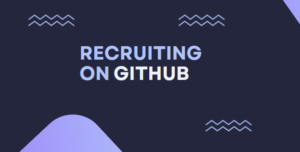
GitHub is the worlds largest open-sourced repository coding sites online today. Currently, it has over 28 million users and over 57 million in repositories. With so many monthly active users sharing and learning about coding it’s a fantastic place for Talent Sourcers to find qualified talent. With the recent encouragement by Susanna Frazier, I wanted to reflect on GitHub and showcase how to source and recruit on this social network.
What’s included in a users profile?
Username – You can use this to crossreference on namechk.
Location – Another vital piece when sourcing.
Current Company – Another important piece.
Links – This includes contact information, websites, or blogs etc.
Number of Followers – The more followers means how skilled they actually are. Anything above 50+ is incredible.
Contributions – Use this to find additional keywords to search for.
Repositories – Review there open-sourced projects. Great place to share what they there currently working on.
Searching on GitHub
GitHub has two search engines one being a simple search and also an advanced search. Good to note, basic Boolean operators like AND, OR, NOT will work in searches. I’ve included some search parameters when searching directly in the search bar:
Language
Language:c++
language:javascript
Location
location:minneapolis
location:”minneapolis”
location:minneapolis location:san francisco location:los angeles
Followers
followers:>5 -Searching users with more than 5 followers.
followers:<5 -Searching users with less than 5 followers.
followers:1..5 -Searching with users between 1-5 followers.
Username
author:example – searching for authored content.
user:example – searching in repositories.
created:2018 – looking to see when the user profile was created.
Xraying Github
When xraying GitHub you should target both domains when searching: github.com and github.io. Also, I recommend searching through Google when doing these xray searches. I included some examples below:
Basic search
site:github.com “joined github” minneapolis “javascript”
Searching for Email Addresses
site:github.com “joined github” minneapolis “javascript” “*gmail.com”
Searching for the most active users
site:github.com “contributions in the last year” minneapolis “javascript”
Searching based on job titles
site:github.com “joined on” “public activity” -tab.activity “Java Developer” minneapolis
Advice on Messaging Users
So, now you know how to search and xray on GitHub. The tougher part is engaging and communicating with those users. GitHub is seen as a place to learn and not necessarily as a place to find a new job. Do not treat it like another LinkedIn resource. Here’s some tips on communicating with users:
- Do not write in paragraph form. Use a few 2-3 sentences at most when reaching out.
- Focus on what they are working on. Try highlighting their recent project activities in the message.
- If they don’t respond let it be. Do not over-communicate like on LinkedIn.
- I recommend (two outreaches) over GitHub directly and also over email.
Overall, I definitely recommend searching on GitHub. There’s a ton of active monthly users that and might not even be active on LinkedIn. You need to use this resource as a way to expand on your searches when sourcing. Please let me know if you have any questions in the comment section below.
Recommended Reading:
How to Prepare for a Recruiter Job Interview
Amy Miller Interview Spotlight
Top Diversity Recruiting Tools to Find Talent
- AI Search Will Transform Talent Sourcing Forever - January 10, 2025
- Build an AI Sourcing Assistant using ChatGPT 4 - January 10, 2025
- Top Recruiting Leaders to Follow in 2025 - January 8, 2025

“With the recent encouragement by Susanna Frazier, I wanted to reflect on GitHub and showcase how to source and recruit on this social network.” 💜 Love that I was able to encourage you, Jonathan! #sharingiscaring 🤗
Thank you, Susanna!!